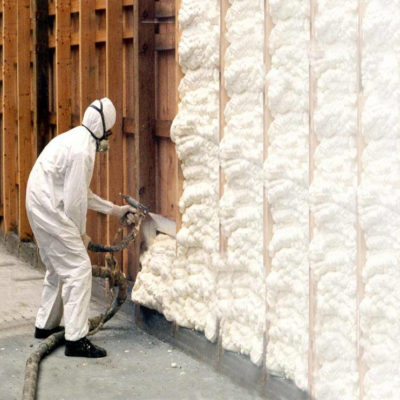Spray Foam Insulation
Spray foam insulation is a composite material formed when two chemicals (isocyanate and polyol resin, typically) meet. Kept in two separate hoppers or tanks and transported by gas pressure or a liquid, these chemicals meet at the tip of a spray gun. When they meet, they react to each other and create a foam solution. This foam then dries in place and creates an effective air and vapor barrier.
Within this foam are little pockets known as “cells.” These cells create air gaps and barriers that make it difficult for heat energy and sound to pass through the foam. And, since the foam expands to the space in which it’s sprayed, these pockets will reach even the small nooks and crannies. These characteristics make spray foam a very effective insulator.
Reduce Energy Costs
Air leakage can account for as much as 40 percent of the energy cost to heat and cool your home, according to the Department of Energy. That is the equivalent of leaving a window open 24 hours a day, all year long.
Only spray foam insulation protects against the single biggest source of heat flow – air leakage – because it forms an effective air barrier.

Moisture Barriers
Spray foam insulation acts as an effective filler and insulation. It fills and insulates small cracks and crevices throughout your home or business. Because it is impermeable to water, spray foam insulation will remain intact if flooding or moisture were ever to impact your home.
Mold Resistance
Homes and businesses that have closed cell spray foam insulation within them aren’t subjecting themselves to harmful mold and bacteria growth. This will prevent bad smells, health risks, while also reinforcing the overall stability of the structure of the home or business.
Energy Savings
A feature that helps spray foam insulation over traditional insulation is the fact that it is 24x less permeable to air infiltration than traditional forms of insulation. Spray foam insulation has been shown to save people an average of 50% or more per year on their energy bills.

Hours
Monday 8 AM – 4 PM
Tuesday 8 AM – 4 PM
Wednesday 8 AM – 4 PM
Thursday 8 AM – 4 PM
Friday 8 AM – 4 PM
